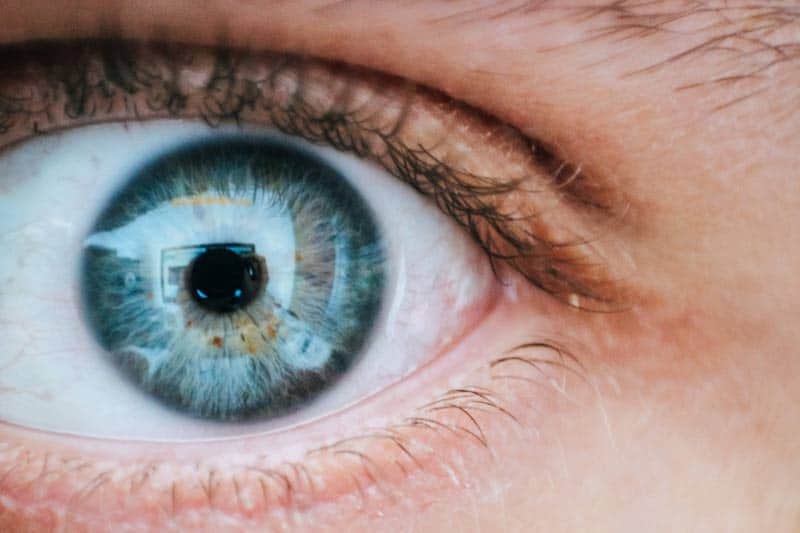Losing use of your senses – any of them – can have serious deleterious effects on your health. Not only do you live without taste, smell, sight or the loss of another major sense, but according to a study in the Journal of American Geriatrics Society, you also have a higher chance of mobility problems, difficulty with daily activities, potential mental health issues and overall worse health.
In short, caring for your senses is important – to your health, to your quality of life, and to living long and well.
How can you do that? What steps can you take to ensure your senses are strong and healthy for as long as possible? Here are some options.

Sight
Losing your eyesight – even just partially – can be life-changing, impacting every second of every day of your life. Fortunately, there are many ways you can care for your eyes and optimize your sight for as long as possible.
Here’s what you’ll want to do:
- Eat the right diet – Your eyes need Omega-3 fatty acids, vitamin C and vitamin E. Focus on eating plenty of fish, nuts, citrus fruits and green leafy vegetables. Be sure to watch your blood pressure, as too-high readings can hurt your eyesight as well.
- Avoid strain – The less you strain your eyes, the better. Make sure you have proper lighting when reading, and keep your prescription updated at all times. Avoid looking at a screen or focusing on something up close for too long, and be sure to give your eyes plenty of breaks. They need to rest just like you do!
- Invest in sunglasses – The sun can damage your eyes irreparably, so invest in a nice pair of sunglasses and keep them somewhere you’ll remember every time you go out. You can even get transition lenses, which allow your regular, daily glasses to turn into sunglasses when you go outdoors. This makes protecting your eyes easy and hassle-free.
- See an optometrist annually – Make sure to see an optometrist regularly to make sure your prescriptions are still accurate and to catch any potential health concerns early.

Taste & Smell
Taste and smell are very connected, so when you start to lose one, you typically lose the other as well. As such, protecting one can often protect both senses.
Here are the steps you can take to do that:
- Keep your teeth healthy – Poor dental hygiene and health can often cause problems with taste and smell – particularly if you have an infection or disease of the gums.
- Reduce your salt intake – Too much salt can ruin your taste buds – and your sense of taste – forever, so take steps to lower your intake. Reducing your sodium can also improve your overall health and reduce blood pressure.
- Eat a varied diet – Keep your taste at its prime by switching up your cuisine once in a while. Try to avoid getting into too much of a food rut, and try something new or adventurous every so often.

Hearing
Hearing loss is extremely common among seniors, but that doesn’t make it any easier to deal with. Thankfully, it’s not inevitable – and there are things you can do to stave hearing loss off for some time.
- Protect them from load noises – Once the damage is done, there’s no going back, so protect your ears from loud, potentially damaging noises starting now. Stock up on earplugs, and use them anytime you may be exposed to loud or high-pitched sounds. Keep your TV and music at a low volume, and ask your friends and loved ones to do the same.
- Minimize background noise – The less work your ears have to do, the longer they’ll last you. Whenever possible, cut down on the overall noise you’re ears are exposed to. Turn off TVs when you’re not watching them, and avoid loud, crowded environments.
- Talk to a doctor asap – If you suspect you might be losing your hearing, see your doctor immediately. Hearing devices can help you combat hearing loss, as well as minimize the strain you put on your ears trying to fight it.

Touch
Loss of touch occurs for a variety of reasons as we age, including changes to our skin, a decrease in overall sensitivity and developments in our nervous system. To combat them, try to:
- Stay physically active – Circulatory issues are often what causes loss of touch. To fight this, make it a point to stay active. Try an activity like swimming, which uses all of your limbs and is great for circulation. If you can do the activity outside, that’s even better. Good sun exposure is crucial to good health!
- Take care of your skin – Bathe thoroughly daily, and use a high-quality lotion to keep your skin in great condition. When going out in the sun, always apply sunscreen – especially to sensitive areas like your face and neck. Drink plenty of water to make sure you skin stays hydrated.
- Focus on proper nutrition – A healthy diet is vital to all your senses, but it’s particularly important for touch. Not only does a well-balanced diet fuel your brain and nervous system, but it also keeps your skin at its healthiest. Broccoli, tomatoes, eggs and seeds are all great food choices for your skin.
Get the Help You Need
Do you want help caring for your five senses and ensuring a long, healthy life ahead? Then come to Ganton’s. With a full staff of caring, knowledgeable medical professionals, a wide variety of activities, menus and offerings, and plenty of opportunities to socialize and meet like-minded friends, Ganton’s has the resources you need to live many happy, healthy decades more. For more information about Countryside, please call Margaret Nagel at (517) 206-5000 or download our brochure to learn about our care levels, cost, and amenities.


